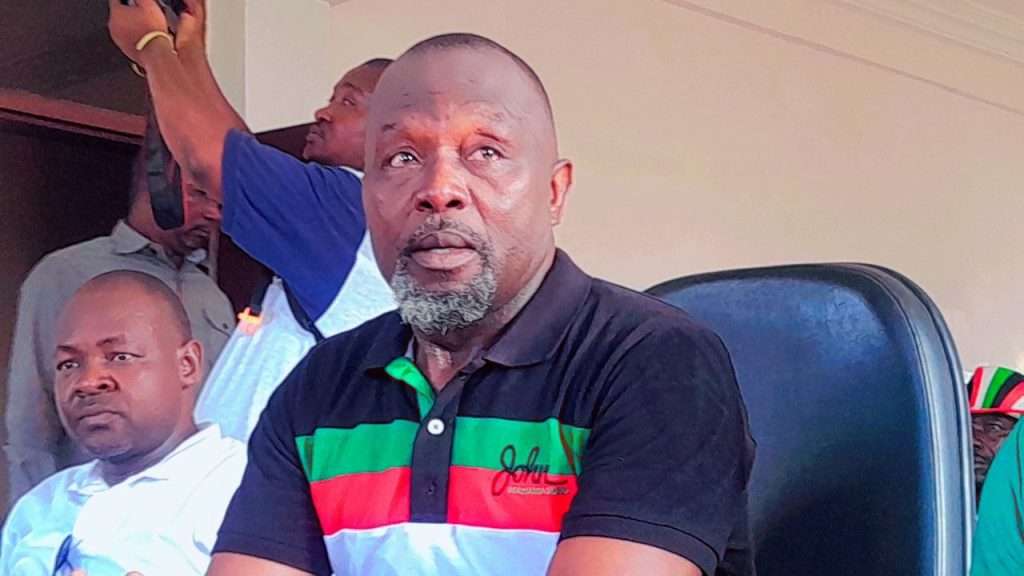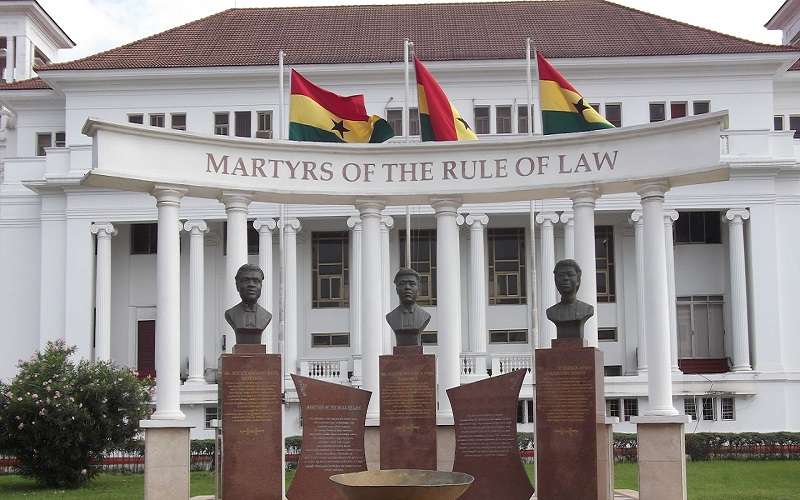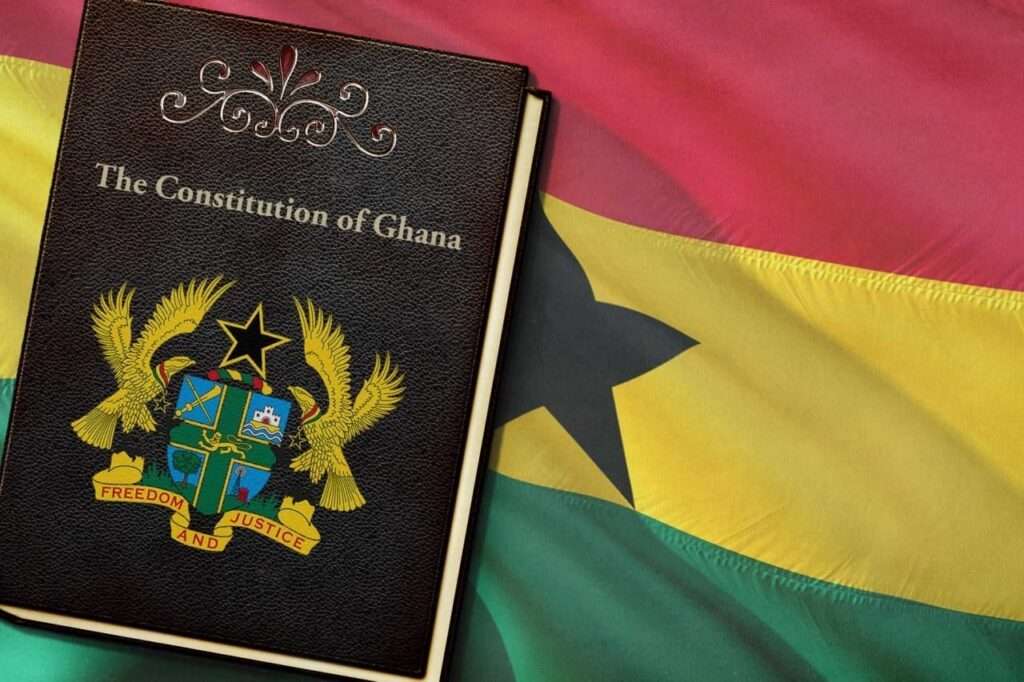The recent withdrawal of high-profile cases involving political figures by Ghana’s newly appointed Attorney General, Dr. Dominic Ayine, has ignited a debate on governance and accountability in the judiciary.
Dr. Zechariah Langnel, a political scientist, has weighed in, asserting that “this is a symptom of a democratizing country.”
He noted that Ghana is still in the process of building strong institutions and reinforcing governance structures.
However, these developments expose the challenges of institutional resilience and raise concerns about selective justice.
In an interview with The Vaultz News, Dr. Langnel dissected the issue, pointing out that governance in Ghana has largely been reduced to post-regime accountability.
“A new government assumes office, and the only way it internalizes good governance principles is by holding the previous administration accountable—essentially letting itself off the hook.”
Dr. Zechariah Langnel
This pattern, he explained, makes it difficult to institutionalize genuine governance norms.
Meanwhile, the Attorney General’s decision to discontinue certain cases has drawn sharp criticism.
Accordingly, Dr. Langnel indicated that the current government that promised “Operation Recover All Loots” (ORAL) is now effectively implementing “Clear All Looters” (CAL) by withdrawing these without going to trials.
This shift, he pointed out, fuels perceptions of selective justice and political expediency.
A truly democratic nation, Dr. Langnel emphasized, would ensure that such cases reach their logical conclusion, serving justice and reinforcing public confidence. “Even those accused should welcome the opportunity to clear their names if they are indeed innocent”.

However, with these cases dragging on for years without resolution, questions arise about the intent behind these prolonged legal battles.
Accordingly, Dr. Langnel queried “If the state has not been able to conclude these cases in all this time, what exactly is it looking for?”, suggesting that the judiciary’s approach may be politically motivated.
Another major concern is the apparent inconsistency in judicial proceedings.
Dr. Langnel pointed out that the judiciary initially pursued these cases, but their discontinuation by the Attorney General signals potential interference.
He warned that such moves undermine institutional integrity and public trust in the judicial system. “Opinion polls suggest that trust in the judiciary has declined, especially over the past eight years”.
This, he added, is not just a judiciary issue—many state institutions have suffered credibility crises due to political influence.
Judiciary’s Image Holds Global Impact
Furthermore, Dr. Zechariah Langnel stressed that beyond local concerns, these withdrawals and the judiciary’s perception have global implications.
He argued that investors seek assurance that Ghana’s judicial system is fair and independent of political manipulation.
Accordingly, the political scientist indicated that if the judiciary is perceived as a tool of the executive, Ghana’s democratic credentials could be questioned.

Dr. Langnel stressed that the withdrawals highlight the imbalance of power between the executive and the judiciary.
“We often speak of the separation of powers and checks and balances, but these principles only work if institutions maintain their autonomy. Allowing cases to go to trial and reaching a conclusion—whether guilty or exonerated—would strengthen public confidence in the judiciary and reinforce institutional fairness.
“This situation gives the impression that the judiciary lacks independence. If the previous government had remained in power, these cases would likely still be in court”.
Dr. Zechariah Langnel
As such, he cautioned that this raises concerns about possible underhand dealings between the judiciary and the executive, which does not bode well for Ghana’s democratic progress.
He pointed out that if this trend continues, the long-term implications for governance and accountability could be dire.
Selective prosecutions, Dr. Langnel warned, create an environment where corruption is only tackled when it involves opposition figures.
This undermines the credibility of anti-corruption efforts and fuels perceptions of political witch-hunting. “This is why, despite the rhetoric on combating corruption, little progress is made—because the process is often politicized,” he lamented.
Calls for Institutional Reforms
To address these governance challenges, Dr. Langnel called for urgent reforms.
He emphasized the need for constitutional amendments to curb excessive presidential powers, particularly in appointing judicial and state institution officials.
“The current government’s decision to set up a constitutional review committee is commendable, but the changes must go deeper to curtail executive dominance”.
Dr. Zechariah Langnel

Ghana’s governance system, he argued, is overly centralized, leading to what he described as a “constitutional autocracy” where the President wields excessive power.
Accordingly, Dr. Langnel emphasized that reforming this structure is essential for democratic consolidation.
He also stressed the need for procedural transparency in legal decisions.
As such, he urged the Attorney General to provide clear justifications for discontinuing these cases, emphasizing that transparency is a cornerstone of democracy.
While the Attorney General has the legal authority to continue or drop cases, the public deserves an explanation. “Citizens deserve to know why such actions are taken, as transparency builds institutional trust and strengthens democracy”.
“Ultimately, the Attorney General must publicly explain the rationale behind these discontinuations. Doing so would contribute to deepening democracy and ensuring accountability”.
Dr. Zechariah Langnel
The Attorney General must publicly explain the rationale behind these withdrawals, as failing to do so erodes public trust.
According to Dr. Langnel, without transparency, the justice system risks being perceived as a tool for political maneuvering rather than a pillar of democracy.



















